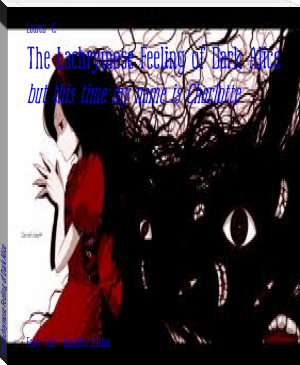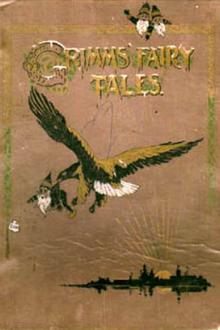The Golden-Beaked Raven, Alice Arbuthnot [best e books to read .TXT] 📗

- Author: Alice Arbuthnot
Book online «The Golden-Beaked Raven, Alice Arbuthnot [best e books to read .TXT] 📗». Author Alice Arbuthnot
A long time ago, there was a village, which went by the name of Harshin. Having been dropped into the middle of a mountainous country, Harshin and its’ inhabitants never heard much from the world; therefore thought themselves to be the only ones in it or at least a powerful city in it. The whispers from where this village (for it truly was a village) used to lie have given birth to many stories of legend, but one of these stories stands out above the rest.
Possibly the most important of character in the fabled Harshin’s history was one by the name of Tabitha, but we will speak on her later.
As I said no word had ever came from over the mountains, but one being did; though its arrival was not a celebratory one. Every year its’ dark shadow would block out the sun and crusty call would envelope the land of Harshin. Children would run inside and Mothers and Fathers alike would cry as its’ shape swooped down and stole the inhabitants mailboxes and scarecrows. A tall creature, it was, with plumes of glossy black feathers and a beak that glimmered in the sunlight or moon light or any light for that matter. It was this glinting pecker, that gave the creature the name Golden-Beaked Raven.
Now I will return to the mention of the courageous Tabitha, whose mailbox was found missing after an attack one year. Tabitha’s father, tired of building mailboxes every year, decided to go over the mountains in search of this mail-stealing Raven and bring their letterbox back. Time elapsed and months passed, but her father was simply gone—never returning to Harshin.
One year later…
Again, the crusty call fell upon the village and most children fled the streets; all except one that is. Alone, Tabitha ran toward her family’s barn in the seemingly deserted town. Scaling its walls and climbing upon its roof, she waited for the Golden-Beaked Raven. Closer and closer, the calls echoed until a black shadow appeared, swooping down by the barn with her neighbor’s mailbox in sight. Upon seeing it, Tabitha readied herself so when the Raven arrived beneath her perch, she silently leapt off the roof and onto the monster. As the Raven cawed out in shock, Tabitha quickly spit out her gum, used it to mold one hand into the creature’s dark feathers, and, with her other, squirted a bottle of paste to hold her legs firm as she rode upon the Raven’s back.
Over the mountains they flew, Tabitha’s “massive city” becoming a dot as the Raven swerved left to right to avoid high spires of rock and tried to toss his rider, who was grasping tightly to his dark plumes beneath the bubble gum to stay aboard. All was well at first, but it didn’t take long for the gum to stretch and the glue to chip, and the next thing she knew Tabitha was falling towards a white patch of ground beyond the mountains. As the patch grew larger Tabitha braced herself, but no solid earth came. She had landed in a lake of cotton.
Still shocked and dizzy, Tabitha did not consider anything peculiar whenever suddenly a large body settled beneath her and moments later laid her on land. Upon seeing her savior, the girl let out a small yelp, for the being’s face was quite large and covered teal scales, having green webs like that of a duck’s foot about its head.
The creature, having introduced itself as a Spharnock, said it had seen her fall from the Raven’s back. After hearing Tabitha’s story the Spharnock told her that her father lived, but was in the bird’s nest. “Raven hath been cruel to me for a many so long centuries,” the creature had said in an equally scaly voice, “so I shalt offer thee a bargain.” The Spharnock would tell her where her father was being kept if she killed Raven and, as proof, brought his glossy plumes and her father to him afterward in trade for riches, “The Raven shall die, thou father shalt be saved, and golden rewards shalt be thine.”
Clever Tabitha, who had no interest in gold nor a dead Raven, promised by saying, “Justice shall be thine and the prize mine.” She was told where the Golden-Beaked Raven nested and how to kill him, and in thanks gave the Spharnock some water that had been packed for her travels, for the lake of cotton had little water.
The forest’s local griffin (a friend of the Spharnock’s) gave Tabitha a ride to the mountain cave on its thousand foot perch. Upon arrival, Tabitha slowly crept inside and peered around for the Raven. Not seeing any birds, she ran in and saw a cage made of interwoven braches and twigs holding mailboxes and her unconscious father. She broke twigs with ferocious speed, and shouted for her father to wake, but was interrupted by an old, wizened voice, “Child, he made himself slumber.”
Tabitha turned to see nothing more than the shadow of the Golden-Beaked Raven covering the exit. Clasping a branch from the cage she readied to defend herself, but the Raven only spoke, “The man attacked me upon sight, child, he gaveth me no time to speak and fought until he fell into a deep slumber.” Speaking is not a good way to describe it, the creature was said to be so intelligent that whenever he simply thought, others heard it. “I ‘twas forced into a defense to only keep myself alive, and since, he hath not woken long enough for anything ‘cept nourishment. I doth believe fear and anger and hate, all, hath made him ill.
“The man tis there for his own protection though,” Raven assured, “that Spharnock heard of his arrival and demanded he be given over as a snack,” the raven did not register her shock, “I say ‘I shan’t do it,’ but he did not like that,” the creature thought, as if to himself.
Years prior the Spharnock had planned to attack Tabitha’s village, and steal the humans he could for food, but the Raven convinced him that wood would taste better than the scrawny humans would. So for decades the Raven stole Harshin’s wooden mailboxes and scarecrows to feed the Spharnock’s heavy appetite and keep Harshin’s citizens safe, but the cover was ruined when he smelled Tabitha’s father.
“I had held him off thee for so long, and to think! All lost because one man—one of thine own—wanted revenge! Vengeance doth be such a nasty, slimy thing! The griffin had been sent to slaughter me and taketh the man; he was unable to overpower me and I sent him flying home in shame; but I suppose you were sent to do the same,” he mused, looking down in the direction of the lake. “The Spharnock knoweth I am unable to harm a human after caring for their kind so long...”
When his story was over, Tabitha decided there to be more truth in it than in the Sphornock’s and agreed to accompany him to the lake of cotton. As according to plan, she distracted the Spharnock with conversation and a handful of chicken feathers, convincing it of the Golden-Beaked Raven’s death; meanwhile, from behind, the Raven crept toward the creature.
“Very good, child,” the Spharnock rasped, “but where tis thine father?” Tabitha had forgotten that part of the agreement, “He hast already been slain,” she said quickly, looking at the ground and tears pricking her eyes at just the thought, “but I hath slain Raven, so I doth deserve half the gold.” “That ‘twas not thine promise, but I shall make an exception for thee,” he said as his mouth pulled back to reveal a sneer of sharp golden teeth. “Your golden reward, greedy child,” he snarled and lunged, but did not make it far for Raven tackled him at just that moment, claws fully extended.
The fight rolled about, took air, crashed down, and, eventually, turned sideways as the Spharnock fell into the cotton-filled lake with Raven still scratching and pecking at his industrious scales.
Different sources have revealed different stories of the moments that followed. Some say Tabitha waited for the victor to surface, holding her breath the entire time in anticipation. Others promise that a day passed before Tabitha leaped in and slew the Spharnock herself, but all agree that, finally, the Golden-Beaked Raven won.
He is said to have burst forth with a caw of victory as water filled the cotton lake in his wake. Allegedly, Raven thought the death of the Spharnock had released all the water it had absorbed in the lake and would soon turn the cotton back into the pond life it had once been.
With a caw-like laugh, Raven thanked Tabitha and she him, and all was at peace for once in the land’s history—until a dagger thrust its’ way out of the side of the Raven’s neck. With a thump, the Raven fell upon the forest floor, to reveal a man running towards Tabitha and yelling her name from behind what the bird’s body blocked moments earlier. Her father’s smile melted when he saw her cry out and sink to the ground, holding the head of dying, wise old Raven as he cawed his last notes to her. His thoughts came slowly, as if he were tired, “Vengeance doth be slime…” a pause to let his mind breathe,”…but forgiveness… for—forgiveness…doth—”
Her father pulled her from the beast that he feared had hurt her. She screamed and kicked, but she could not push him away, and Raven’s body began melting into the green field. It melted like ice on a hot day and covered the grass, sinking into it and turning it greener until a tiny sprout shot out. The sprout became a tree and grew and grew, faster than any ever had. Soon it formed small golden shapes to dangle from its’ branches, which in turn grew to the size of grapefruit until one grew too heavy and fell upon the soft grass. Escaping her stunned Father’s grasp, Tabitha ran forward, scooped up the large golden apple, and began to cry anew, “‘The Raven shall die, thou father shalt be saved, and golden rewards shalt be thine,’” she whispered.
Tabitha left with her father, apple, and mailbox to return to the village (as she now knew it to be) with a new story. The villagers planted the apple seeds in the middle of town and every year had a festival in which they would burn cotton and mailboxes; and sing songs of an unsuspected hero.
Many years have passed, villagers and memory have long since been replaced by generations and new ideas, but a few things live on: mailbox-burning festivals, healthy apple trees, and the legend of The Golden-Beaked Raven.
ImprintPublication Date: 01-22-2014
All Rights Reserved
Dedication:
to mr lundy, who forced writing and allowed imagination





Comments (0)